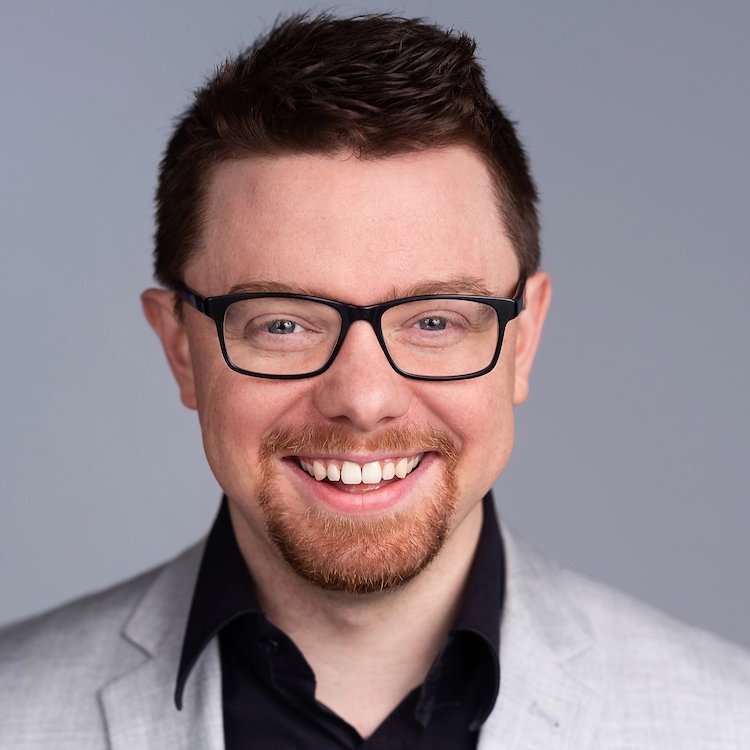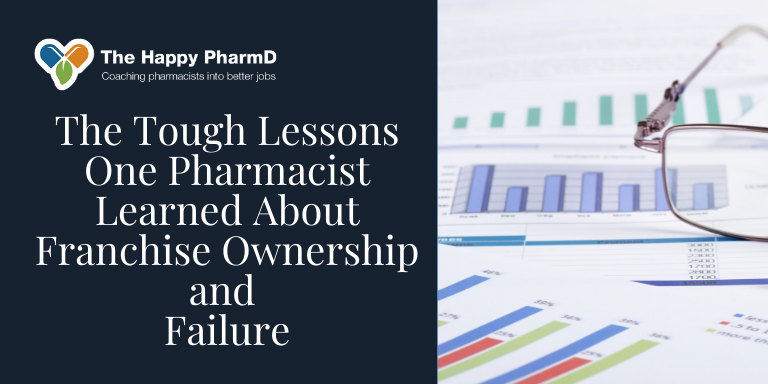
Alex is the Founder of The Happy PharmD. He loves anime, his family, and video games, but not in that order.

Even successful pharmacists can benefit from a side hustle.
That might sound strange in an industry that pays its new graduates six-figure incomes, but the financial benefits of a side hustle are only a small part of the equation.
Given that many pharmacists find their work boring or unfulfilling, side hustles can provide a creative outlet and a chance to engage in passions outside of pharmacy.
A couple of years ago, I was looking for a way to build additional wealth outside of traditional investments. My coaching business was thriving, and my wife and I were using most of the proceeds to pay down our debt.
I was looking for a way to generate passive income as a pharmacist, and despite my concern that franchises have too much overhead, I investigated.
In the beginning
Because I love learning about new investment opportunities, I interviewed a local franchise owner about the transition to full-time franchise work. I learned a lot about franchises from him, and how he operates his particular business.
As a side-hustle, franchises are a great option, because they’re a sort of ready-made opportunity. Franchisees pay a fee to have access to an established system that has already proven successful.
On the other hand, the more I learned about franchises, the more I disliked the idea of investing in one.
The truth with most franchises is that you’re buying a job. You’re creating more work for yourself.
A major part of me said ‘no way’ to franchises because they’re too traditional, but I’m learning to ignore my natural biases when I’m learning new things.
As part of my research, I listened to a podcast called Franchise Euphoria by Josh Brown. He interviews different franchisees and franchisors, and I learned about a business called School Spirit Vending (SSV).
SSV places vending machines in grade schools, giving students the chance to buy stickers and other types of items. The school gets 25% of the profit, and the franchisee and the franchisor each benefit from the sales.
Granted it isn’t a huge moneymaker: a typical machine in SSV generates about $80 per month. That’s not much money at all. If, however, you multiply that over time and space, it’s a decent amount of money for not much time.
Given that each machine requires about 30 minutes to service, you could service about 16 machines a day if you lived in a large area. If you had 50 schools, making $80 profit per month, and 9 months of school, you’d make about $36,000.
In my particular case, I knew I’d eventually make less than that because I would hire someone to run the business and be the point-of-contact for the machines. I just wanted to own the business.
In April of 2016, after meeting with the franchisor several times, I jumped into my fourth business.
My story
SSV provided a wonderful training program and a great opportunity to learn the system. I immediately started applying what I learned.
I enjoyed my hustle, and doing a decent job of reaching out to schools, but no one was biting. Not a single school was interested in the machines.
I know business is a slow grind sometimes, so I continued marketing and advertising. I marketed all summer, but the business hadn’t made me a single dollar. I remember driving to a school one day thinking that I had spent $15,000 on something that wasn’t going to make me any money.
I decided I would renew my vigor at the beginning of the coming school year, and in the fall of that year, I finally got my first school.
The referral came from another franchisee but it was for a school that was 8 hours from my area. Fortunately, I had family nearby, so I took the school on as my own.
The following month, I went back to the school excited to see the results of our first month in operation. Even after I opened the machine and discovered that we had generated $10, I convinced myself that this was still possible.
A few weeks later, we were contacted by a school in my territory, and we finally placed a machine that ultimately generated $50 profit.
Aside from the fact that I wasn’t making much money, I discovered that I wasn’t enjoying the work. It wasn’t in my zone of genius, because what I’m really great at is teaching. I’m not naturally good at sales, so this business model was well outside of my comfort zone.
In my case, my failure stemmed largely from a lack of effort on my part. I lacked the time to dedicate to the project, and my day job took priority during school hours. I couldn’t work on weekends because the schools weren’t open.
I lost vacation time because I had to use it taking care of the business, but I wanted to spend it with my family.
Although many franchisees leave their companies because they lack the necessary support to succeed, I finally decided I wasn’t going to sacrifice any more time or money on the business.
In October of 2017, I stopped actively working in the business.
In the time that has lapsed, I’ve made about $2,000 in revenue, but I’ve likely lost $22,000 to $25,000 on the venture between plane tickets, inventory, and other costs.
I’m happy to say that I was able to create a deal with another franchisee who bought my territory at a steal of a price. I won’t make my money back, but at least I’ll have some back.
Lessons learned
I learned along the way that when you’re choosing a business model, you should absolutely choose something you’re good at.
It’s also extremely foolish to jump in without considering the limitations, like the amount of time you’ll have when you’re not doing your primary job.
Franchising isn’t for everyone, and I missed or ignored many red flags.
I learned valuable lessons from the experience, and I would still recommend SSV for the right person in the right situation.
For my part, though, I should have said no.
Have you been part of a franchise? What was your experience like? If not a franchise, what other passive investments have you been part of?
If you really want to build the career and life that you’ve dreamed of, one where you are helping people and working in a field that you love, you need to do something different than what you’ve been doing.
Through coaching you can re-discover why you became a pharmacist and find your passion again.